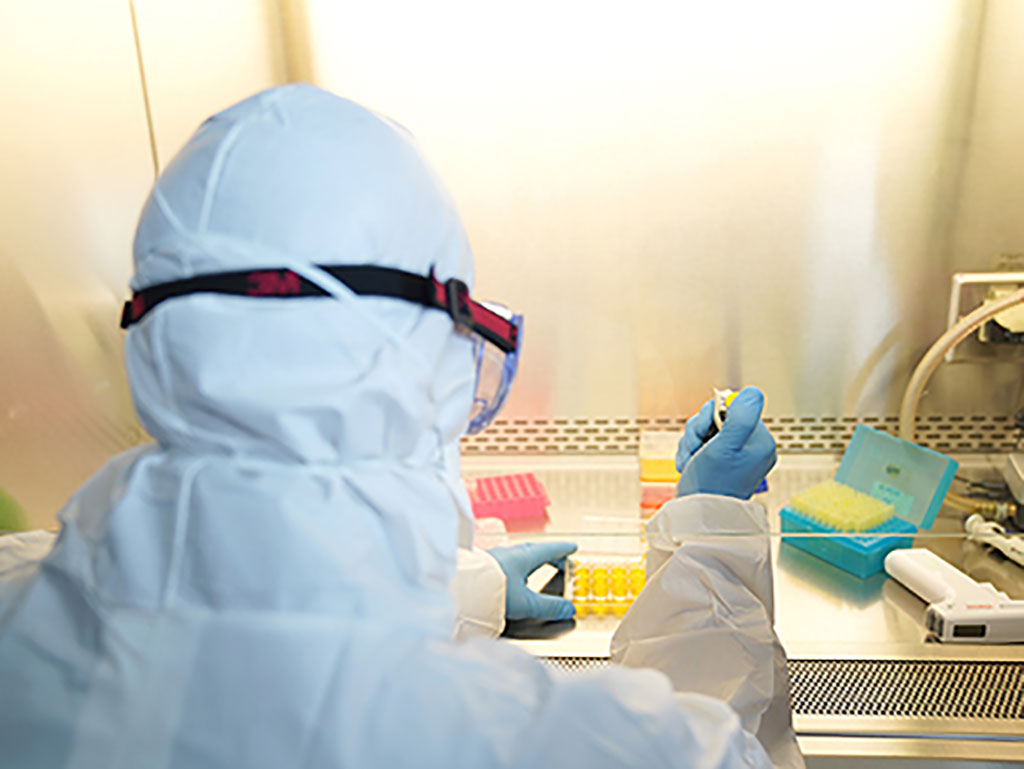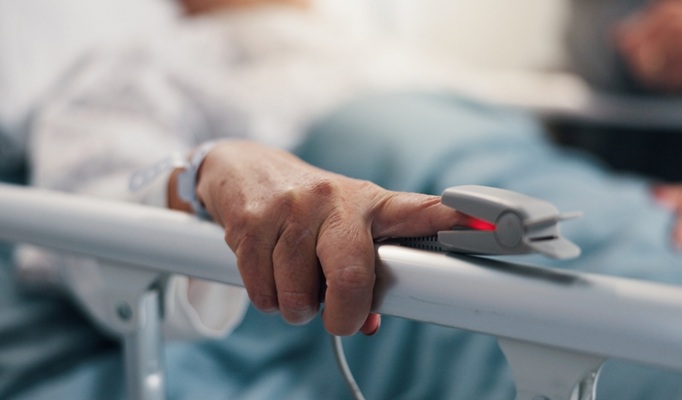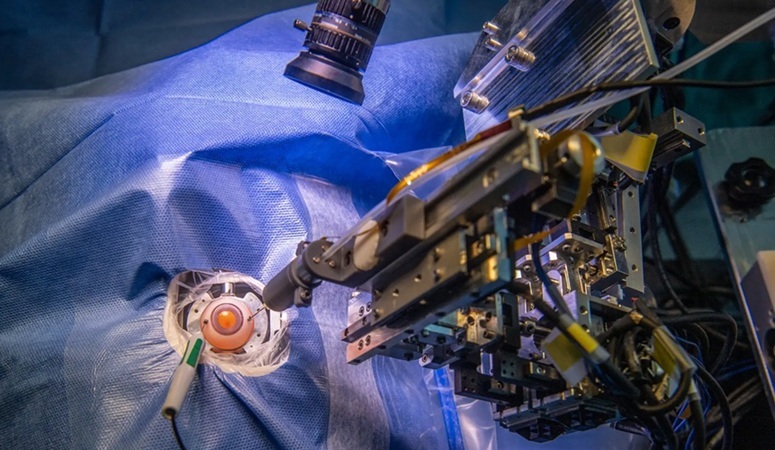Altimmune Partners with University of Alabama to Develop Intranasal Coronavirus Vaccine
|
By HospiMedica International staff writers Posted on 31 Mar 2020 |

Image: Altimmune Partners with University of Alabama to develop intranasal coronavirus vaccine (Photo courtesy of University of Alabama)
Altimmune, Inc. (Gaithersburg, MD, USA), a clinical-stage biopharmaceutical company, is collaborating with the University of Alabama (Birmingham, AL, USA) for the preclinical testing of a potential vaccine to prevent COVID-19 disease. The COVID-19 vaccine, called AdCOVID, is a single-dose vaccine candidate that is delivered by an intranasal spray. The testing at UAB will investigate immune responses to the vaccine in mice before Altimmune can launch a Phase 1 human safety and immunogenicity trial in patients in the third quarter of this year.
Altimmune is focused on developing treatments for liver disease, immune modulating therapies and vaccines. The company’s pipeline includes next generation peptide therapeutics for NASH (ALT-801) and chronic hepatitis B (HepTcell), conjugated immunostimulants for the treatment of cancer (ALT-702) and intranasal vaccines (NasoVAX and NasoShield). The new intranasal vaccine is based on the same platform vaccine technology as NasoVAX, the company’s influenza vaccine candidate. Like NasoVAX, the COVID-19 vaccine is designed to provide systemic immunity following a single intranasal dose. A recent Phase 2 clinical study with NasoVAX highlighted the ability of intranasal vaccine delivery to stimulate a durable and broad immune response against the influenza virus. Altimmune believes the clinical profile of NasoVAX is particularly relevant to COVID-19 because intranasal delivery directs the immune response where it is needed most to protect against respiratory infection, including the likely site of initial viral attack.
UAB also has extensive experience in conducting clinical studies of vaccines and has participated in studies sponsored by the Vaccine Evaluation and Trial Unit, part of the National Institute of Allergy and Infectious Diseases at the National Institutes of Health. Six UAB labs will work together on this urgent collaboration with Altimmune. The company expects the COVID-19 vaccine candidate to activate mucosal and cellular immune responses, as well as a strong antibody response in the blood, as was found for its influenza vaccine candidate, which uses the same proprietary intranasal vaccine technology. If the AdCOVID vaccine candidate is as stable as Altimmune’s influenza and anthrax vaccines candidates, it could allow inexpensive and efficient distribution of the millions of doses needed for widespread vaccination of populations.
“With the spread of COVID-19 outside of China, including the first case of unknown origin in the US, we have taken action to develop and make our vaccine technology available to help address this crisis,” said Vipin K. Garg, Ph.D., President and Chief Executive Officer of Altimmune. “We believe that our intranasal vaccine technology is especially well suited to provide systemic protection against respiratory infections that affect the upper and lower airways and can therefore be a useful tool in preventing further spread of COVID-19.”
“We are eager to collaborate with Altimmune on this important project," said Frances E. Lund, the Charles H. McCauley Professor and Chair for the UAB Department of Microbiology. “The expertise and infrastructure at UAB will be invaluable to the rapid progression of this vaccine into clinical studies.”.
Related Links:
Altimmune, Inc.
University of Alabama
Altimmune is focused on developing treatments for liver disease, immune modulating therapies and vaccines. The company’s pipeline includes next generation peptide therapeutics for NASH (ALT-801) and chronic hepatitis B (HepTcell), conjugated immunostimulants for the treatment of cancer (ALT-702) and intranasal vaccines (NasoVAX and NasoShield). The new intranasal vaccine is based on the same platform vaccine technology as NasoVAX, the company’s influenza vaccine candidate. Like NasoVAX, the COVID-19 vaccine is designed to provide systemic immunity following a single intranasal dose. A recent Phase 2 clinical study with NasoVAX highlighted the ability of intranasal vaccine delivery to stimulate a durable and broad immune response against the influenza virus. Altimmune believes the clinical profile of NasoVAX is particularly relevant to COVID-19 because intranasal delivery directs the immune response where it is needed most to protect against respiratory infection, including the likely site of initial viral attack.
UAB also has extensive experience in conducting clinical studies of vaccines and has participated in studies sponsored by the Vaccine Evaluation and Trial Unit, part of the National Institute of Allergy and Infectious Diseases at the National Institutes of Health. Six UAB labs will work together on this urgent collaboration with Altimmune. The company expects the COVID-19 vaccine candidate to activate mucosal and cellular immune responses, as well as a strong antibody response in the blood, as was found for its influenza vaccine candidate, which uses the same proprietary intranasal vaccine technology. If the AdCOVID vaccine candidate is as stable as Altimmune’s influenza and anthrax vaccines candidates, it could allow inexpensive and efficient distribution of the millions of doses needed for widespread vaccination of populations.
“With the spread of COVID-19 outside of China, including the first case of unknown origin in the US, we have taken action to develop and make our vaccine technology available to help address this crisis,” said Vipin K. Garg, Ph.D., President and Chief Executive Officer of Altimmune. “We believe that our intranasal vaccine technology is especially well suited to provide systemic protection against respiratory infections that affect the upper and lower airways and can therefore be a useful tool in preventing further spread of COVID-19.”
“We are eager to collaborate with Altimmune on this important project," said Frances E. Lund, the Charles H. McCauley Professor and Chair for the UAB Department of Microbiology. “The expertise and infrastructure at UAB will be invaluable to the rapid progression of this vaccine into clinical studies.”.
Related Links:
Altimmune, Inc.
University of Alabama
Latest COVID-19 News
- Low-Cost System Detects SARS-CoV-2 Virus in Hospital Air Using High-Tech Bubbles
- World's First Inhalable COVID-19 Vaccine Approved in China
- COVID-19 Vaccine Patch Fights SARS-CoV-2 Variants Better than Needles
- Blood Viscosity Testing Can Predict Risk of Death in Hospitalized COVID-19 Patients
- ‘Covid Computer’ Uses AI to Detect COVID-19 from Chest CT Scans
- MRI Lung-Imaging Technique Shows Cause of Long-COVID Symptoms
- Chest CT Scans of COVID-19 Patients Could Help Distinguish Between SARS-CoV-2 Variants
- Specialized MRI Detects Lung Abnormalities in Non-Hospitalized Long COVID Patients
- AI Algorithm Identifies Hospitalized Patients at Highest Risk of Dying From COVID-19
- Sweat Sensor Detects Key Biomarkers That Provide Early Warning of COVID-19 and Flu
- Study Assesses Impact of COVID-19 on Ventilation/Perfusion Scintigraphy
- CT Imaging Study Finds Vaccination Reduces Risk of COVID-19 Associated Pulmonary Embolism
- Third Day in Hospital a ‘Tipping Point’ in Severity of COVID-19 Pneumonia
- Longer Interval Between COVID-19 Vaccines Generates Up to Nine Times as Many Antibodies
- AI Model for Monitoring COVID-19 Predicts Mortality Within First 30 Days of Admission
- AI Predicts COVID Prognosis at Near-Expert Level Based Off CT Scans
Channels
Critical Care
view channel
Pulse Oximeter Index Offers Non-Invasive Guides for Fluid Therapy
In patients with acute circulatory failure, deciding whether to administer intravenous fluids is often a life-or-death decision. Too little fluid can leave organs underperfused, while too much can cause... Read more
Light-Based Technology to Measure Brain Blood Flow Could Diagnose Stroke and TBI
Monitoring blood flow in the brain is crucial for diagnosing and treating neurological conditions such as stroke, traumatic brain injury (TBI), and vascular dementia. However, current imaging methods like... Read moreSurgical Techniques
view channel
Robotic Assistant Delivers Ultra-Precision Injections with Rapid Setup Times
Age-related macular degeneration (AMD) is a leading cause of blindness worldwide, affecting nearly 200 million people, a figure expected to rise to 280 million by 2040. Current treatment involves doctors... Read more
Minimally Invasive Endoscopic Surgery Improves Severe Stroke Outcomes
Intracerebral hemorrhage, a type of stroke caused by bleeding deep within the brain, remains one of the most challenging neurological emergencies to treat. Accounting for about 15% of all strokes, it carries... Read morePatient Care
view channel
Revolutionary Automatic IV-Line Flushing Device to Enhance Infusion Care
More than 80% of in-hospital patients receive intravenous (IV) therapy. Every dose of IV medicine delivered in a small volume (<250 mL) infusion bag should be followed by subsequent flushing to ensure... Read more
VR Training Tool Combats Contamination of Portable Medical Equipment
Healthcare-associated infections (HAIs) impact one in every 31 patients, cause nearly 100,000 deaths each year, and cost USD 28.4 billion in direct medical expenses. Notably, up to 75% of these infections... Read more
Portable Biosensor Platform to Reduce Hospital-Acquired Infections
Approximately 4 million patients in the European Union acquire healthcare-associated infections (HAIs) or nosocomial infections each year, with around 37,000 deaths directly resulting from these infections,... Read moreFirst-Of-Its-Kind Portable Germicidal Light Technology Disinfects High-Touch Clinical Surfaces in Seconds
Reducing healthcare-acquired infections (HAIs) remains a pressing issue within global healthcare systems. In the United States alone, 1.7 million patients contract HAIs annually, leading to approximately... Read moreHealth IT
view channel
Printable Molecule-Selective Nanoparticles Enable Mass Production of Wearable Biosensors
The future of medicine is likely to focus on the personalization of healthcare—understanding exactly what an individual requires and delivering the appropriate combination of nutrients, metabolites, and... Read moreBusiness
view channel
Philips and Masimo Partner to Advance Patient Monitoring Measurement Technologies
Royal Philips (Amsterdam, Netherlands) and Masimo (Irvine, California, USA) have renewed their multi-year strategic collaboration, combining Philips’ expertise in patient monitoring with Masimo’s noninvasive... Read more
B. Braun Acquires Digital Microsurgery Company True Digital Surgery
The high-end microsurgery market in neurosurgery, spine, and ENT is undergoing a significant transformation. Traditional analog microscopes are giving way to digital exoscopes, which provide improved visualization,... Read more
CMEF 2025 to Promote Holistic and High-Quality Development of Medical and Health Industry
The 92nd China International Medical Equipment Fair (CMEF 2025) Autumn Exhibition is scheduled to be held from September 26 to 29 at the China Import and Export Fair Complex (Canton Fair Complex) in Guangzhou.... Read more

















